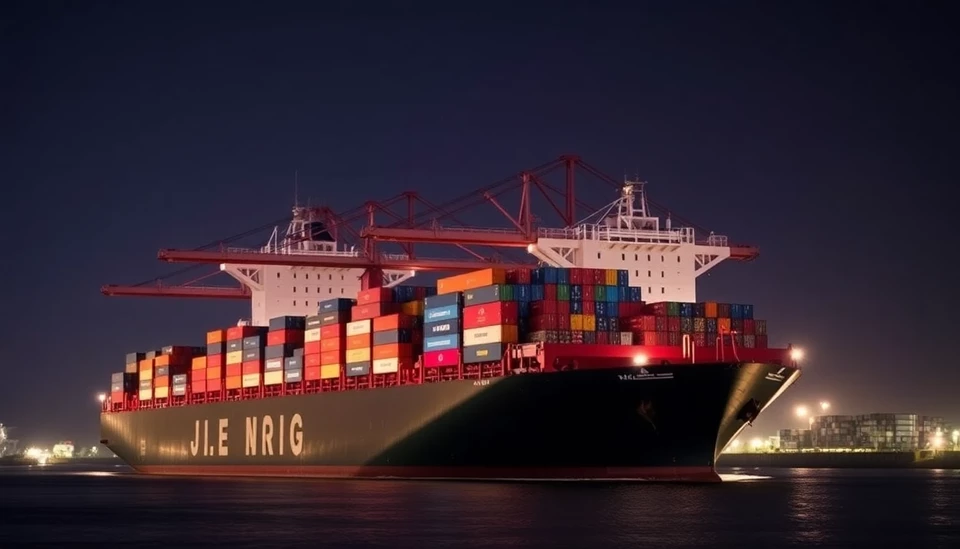
In a surprising turn of events linked to the ongoing trade tensions initiated by former President Donald Trump, Mexican shipping firms are experiencing a remarkable boost in growth prospects. This surge comes as businesses and markets adapt to the new economic landscape shaped by tariffs and trade barriers, leading to a reconfiguration of supply chains and increased demand for shipping services to and from Mexico.
The trade war, which began in earnest in 2018, has prompted many U.S.-based companies to look beyond their borders for alternative supply chain solutions. As tariffs on imported goods from China have risen, businesses are seeking to mitigate costs by sourcing materials and products from Mexico. This shift has positioned Mexican shipping companies as pivotal players in the logistics sector, enabling them to capitalize on increased shipping volumes and enhanced trade activity.
According to industry analysts, the strategic location of Mexico, combined with its existing trade agreements, particularly the United States-Mexico-Canada Agreement (USMCA), has made it an attractive option for firms looking to diversify their supply chains. This situation has not only spurred growth in shipping volumes but has also led to increased investments in port facilities and infrastructure, as shipping companies expand their operational capacities to meet rising demand.
Companies such as Grupo TMM and Servicios de Transportación Vitro have reported significant upticks in business activity, with margins reportedly improving as they adapt to the changing landscape. Furthermore, with semiconductors and automotive parts being key exports, Mexican manufacturers are increasingly finding a viable pathway to deliver goods directly to U.S. markets, thereby minimizing delays associated with international shipping routes hampered by tariff disputes.
The wave of new business has not been without its challenges. Mexican shipping firms have faced logistics hurdles, including increased costs of importing necessary materials and adapting to the faster pace required by the U.S. market. Nevertheless, the overall sentiment within the industry has leaned towards optimism, as companies strategize on how to maximize profits while navigating through these costly adjustments.
While the immediate benefits of this trade diversion are clear for Mexican shipping companies, the long-term implications of these changes remain to be fully understood. As firms look ahead, many express cautious optimism that the trends initiated during the Trump administration may have lasting effects on the shipping and logistics sectors as companies establish a renewed focus on tactical positioning within North America.
As growth prospects improve, it will be essential for Mexican shipping firms to invest in technological upgrades and staff training to enhance service efficiencies. The ability to sustain this growth will depend significantly on their capacity to handle increased shipping volumes while maintaining quality service, thus unlocking further potential to serve a broad range of industries beyond current client bases.
As this dynamic situation continues to unfold, the ripple effects of the trade war on shipping, logistics, and broader economic environments will likely be of great interest not only to industry stakeholders but also to policymakers focused on fostering strong economic partnerships and trade relations within North America.
In conclusion, while uncertainties abound, the current phase of heightened trade activity has opened up new avenues for growth for Mexican shipping companies, bringing both opportunities and challenges to the forefront of a rapidly evolving market landscape. The importance of staying adaptable and strategic in operations cannot be overstated as these companies position themselves for success in the post-trade war economy.
#TradeWar #Mexico #ShippingGrowth #Economy #Logistics #USMCA #DonaldTrump #TradeTensions
Author: Samuel Brooks




